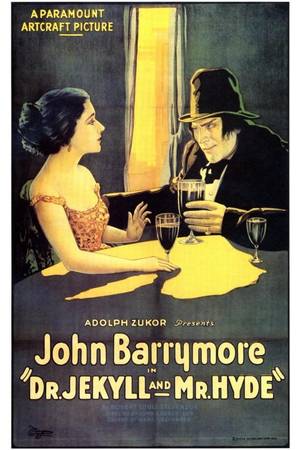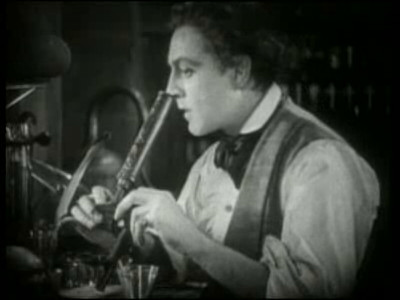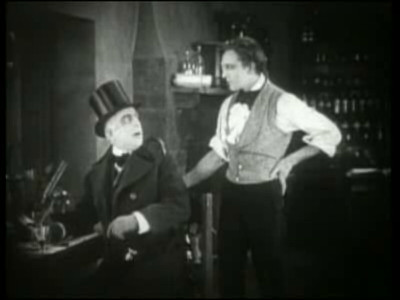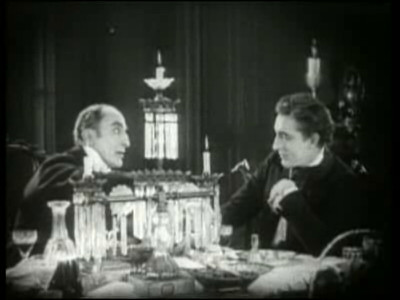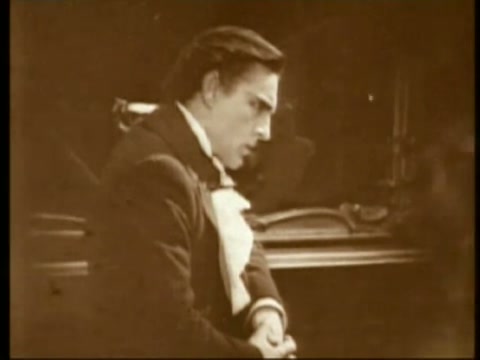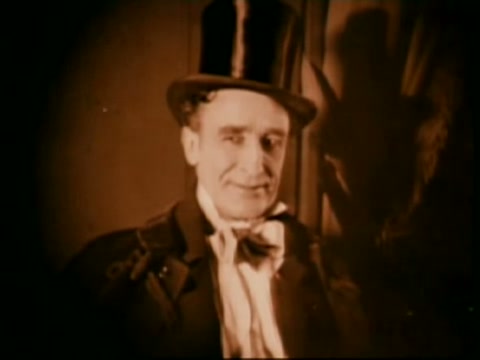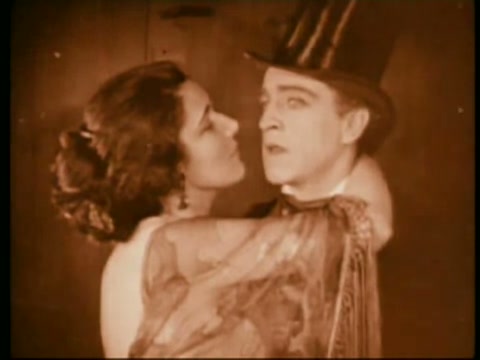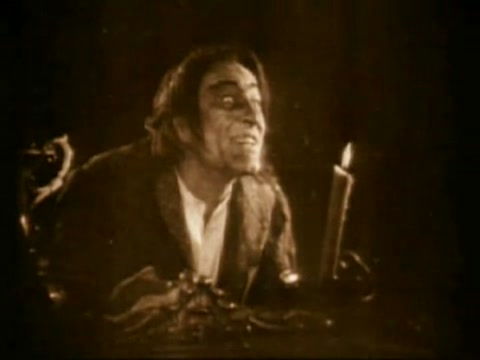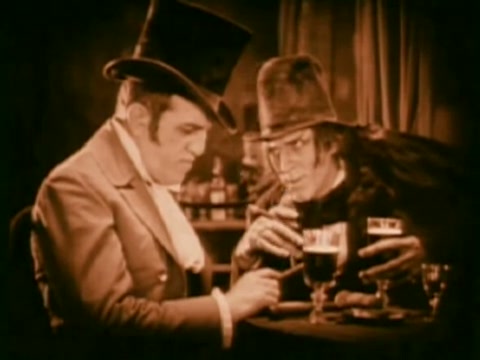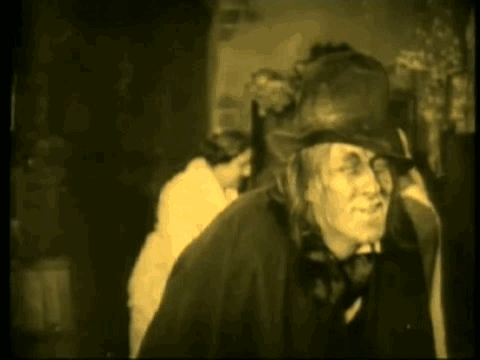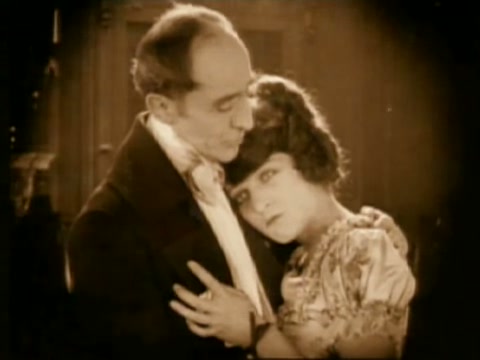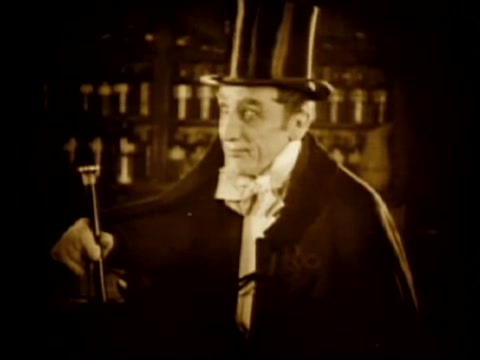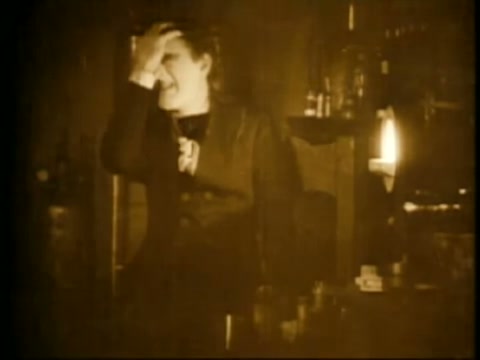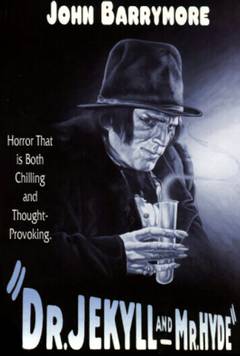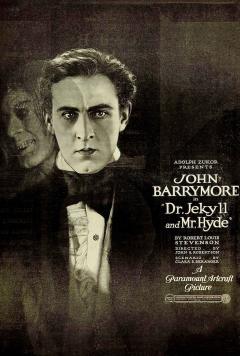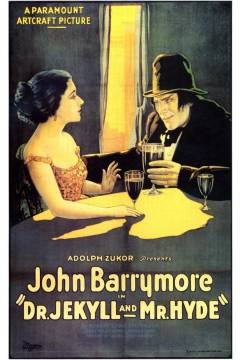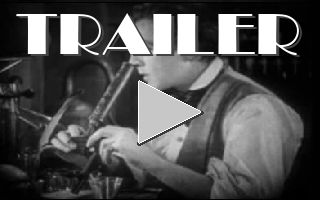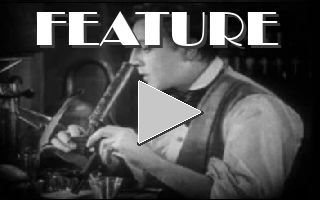Foreword
This silent film is adapted from the book "The Strange Case of Dr. Jekyll and Mr. Hyde" by Robert Louis Stevenson. He was a prolific Scottish writer and poet who was held in high regard by his peers, however his works were wrongly considered as second-class by schools.
During the late 20th century, Stevenson was re-evaluated "as an artist of great range and insight, a literary theorist, an essayist and social critic, a witness to the colonial history of the Pacific Islands and a humanist." (reference)
The protagonist Dr Jekyll is a humanitarian, treating the poor from in his clinic. He is loved by all.
Jekyll's polar opposite is George Carewe, father of Millicent - Jekyll's beloved. He is pessimistic about Jekyll's good nature, and attempts to convince Jekyll to submit to his savage impulses.
Jekyll contemplates this, but concludes giving into temptation is not worth the cost of his soul. He reasons that if he could scientifically separate the good and evil halves of himself, he can yield to evil while keeping his soul untarnished.
Jekyll creates a potion that transforms himself into his dark half, known as Mr Hyde. As Hyde explores temptation, he is lured deeper into a spiral of murder and mayhem.
Will Jekyll overcome Hyde? Will Hyde be caught? Will both halves of the same man suffer the consequences of his evil desires?
This is a haunting tale about the duality of human nature, the eternal conflict of good versus evil. We are fascinated by the temptations of evil - we want to understand and experience how evil feels. That is the nature of consciousness.
Enough nonsense. On with the review!
Science is Supernatural
Dr Jekyll: I tell you Lanyon, we haven't begun to unlock what science can do.
Dr Lanyon: You're playing with the supernatural, Jekyll.
Jekyll: You're a conservative doctor. I am progressive. No matter, I have a dinner to attend.
The Temptation of Dr Jekyll
George Carewe: you spend too much time helping others Jekyll. Why are you not more selfish?
Jekyll: Helping others is how you grow.
Carewe: But you haven't lived your own life.
Jekyll: Hmmm, let me ponder on this ...
Carewe: Let me take you to the night club, where we drink and watch dancing ladies while you ponder.
Jekyll: I am fascinated by these dark temptations.
Carewe: Let me give you a personal introduction to the lovely dancer, Miss Gina.
Jekyll: If I could separate the good and evil natures within me, I am free to bad things and not worry about my immortal soul!
Back in his laboratory, Jekyll spends days working on a potion to split his personality in two.
Jekyll: This potion will transform me into a guiltless monster.
Jekyll: Aarg! Too much vinegar!
Dr Jekyll (as Hyde): This poor light makes me look mighty handsome. Time to get some action!
Some Action
Hyde: I'd like a private audience with Miss Gina.
Proprietor: I dunno, let me think about it ...
(eight seconds later)
Proprietor: Okay.
Days pass while Hyde explores his dark nature.
Hyde: I am such a meanie. Watch me trample this street urchin to death!
Other urchin: Grrr, how dare you!
Casual opium smoker: Oh the horror! You monster!
I Miss My Beloved
Millicent: I have not seen Dr Jekyll for days. Did he forget about me?
Carewe: I will find out darling daughter of mine.
Carewe: Where have you been Jekyll? Have you forgotten about Millicent?
Carewe: Also, if you don't provide a good reason why you associate with a low-life such as Hyde, I will refuse your marriage to my daughter!
Jekyll: How dare you question me, you who set me on this path of temptation! You who shamed me for being a goody-two-shoes.
Jekyll: I shall transform into Hyde without the aide of a potion, and destroy you!
Hyde: Take that! And that! ... And that one too!
Oh the Guilt!
Jekyll is ridden with guilt over killing Carewe, not to mention the a trail of victims left behind Hyde.
What is even worse, Jekyll can't control his transformation into evil without the essential drug, which he depleted from the entire city.
Jekyll secludes himself, fearful of what he may do to Millicent. But he can't hide forever ...
Millicent gains entry to his laboratory. Jekyll feels himself turning to the evil Mr Hyde once again, and in a last act of desperation he swallows poison mere seconds before Hyde takes over his faculties. This final redemption ultimately saves Millicent's life.
Conclusion
This was pretty good. It's backed by a great novella, after all.
You only see a fraction of the whole, given there is no synchronised speech and infrequent intertitles. Unfamiliarity with the story will work against you, and causes one to miss many of the nuances in the film's evocative scenes.
The musical score isn't terrible, but it's not timed with the action. The juxtaposition of the score and the tension on screen is jarring at times (here is an opportunity for a community project to pick a better-suited score.)
The pace is rather slow during the first half, and persons with shorter attention spans may struggle to keep a lasting interest. If this is familiar, consider watching it in smaller segments.
Recommended for when you have time to sit and take it all in.
There are many adaptations of this story to film. I watched was the 1920's version starring John Barrymore.
Posters
Watch It
Notes
- There is a high quality version available. It's best to download and watch it offline, the file size will make streaming challenging.
- You can get a copy of Stevenson's novella for free at Project Gutenberg.
